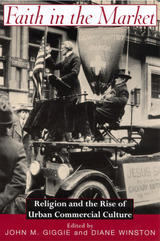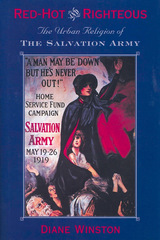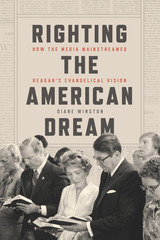

In this engrossing study of religion, urban life, and commercial culture, Diane Winston shows how a (self-styled "red-hot") militant Protestant mission established a beachhead in the modern city. When The Salvation Army, a British evangelical movement, landed in New York in 1880, local citizens called its eye-catching advertisements "vulgar" and dubbed its brass bands, female preachers, and overheated services "sensationalist." Yet a little more than a century later, this ragtag missionary movement had evolved into the nation's largest charitable fund-raiser--the very exemplar of America's most cherished values of social service and religious commitment.
Winston illustrates how the Army borrowed the forms and idioms of popular entertainments, commercial emporiums, and master marketers to deliver its message. In contrast to histories that relegate religion to the sidelines of urban society, her book shows that Salvationists were at the center of debates about social services for the urban poor, the changing position of women, and the evolution of a consumer culture. She also describes Salvationist influence on contemporary life--from the public's post-World War I (and ongoing) love affair with the doughnut to the Salvationist young woman's career as a Hollywood icon to the institutionalization of religious ideals into nonsectarian social programs.
Winston's vivid account of a street savvy religious mission transformed over the decades makes adroit use of performance theory and material culture studies to create an evocative portrait of a beloved yet little understood religious movement. Her book provides striking evidence that, counter to conventional wisdom, religion was among the seminal social forces that shaped modern, urban America--and, in the process, found new expression for its own ideals.

After two years in the White House, an aging and increasingly unpopular Ronald Reagan looked like a one-term president, but in 1983 something changed. Reagan spoke of his embattled agenda as a spiritual rather than a political project and cast his vision for limited government and market economics as the natural outworking of religious conviction. The news media broadcast this message with enthusiasm, and white evangelicals rallied to the president’s cause. With their support, Reagan won reelection and continued to dismantle the welfare state, unraveling a political consensus that stood for half a century.
In Righting the American Dream, Diane Winston reveals how support for Reagan emerged from a new religious vision of American identity circulating in the popular press. Through four key events—the “evil empire” speech, AIDS outbreak, invasion of Grenada, and rise in American poverty rates—Winston shows that many journalists uncritically adopted Reagan’s religious rhetoric and ultimately mainstreamed otherwise unpopular evangelical ideas about individual responsibility. The result is a provocative new account of how Reagan together with the press turned America to the right and initiated a social revolution that continues today.
READERS
Browse our collection.
PUBLISHERS
See BiblioVault's publisher services.
STUDENT SERVICES
Files for college accessibility offices.
UChicago Accessibility Resources
home | accessibility | search | about | contact us
BiblioVault ® 2001 - 2024
The University of Chicago Press









